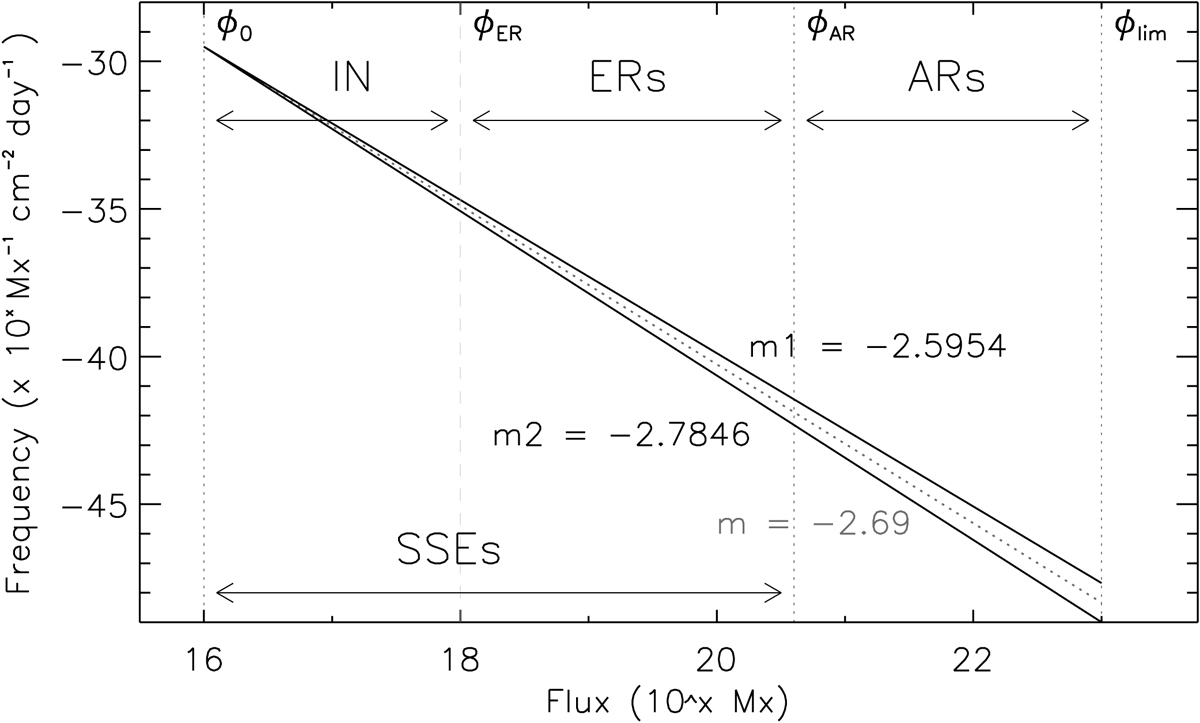Modelling the evolution of the Sun's open and total magnetic flux
Abstract
Solar activity in all its varied manifestations is driven by the magnetic field. Two global quantities are particularly important for many purposes, the Sun's total and open magnetic flux, which can be computed from sunspot number records using models. Such sunspot-driven models, however, do not take into account the presence of magnetic flux during grand minima, such as the Maunder minimum. Here we present a major update of a widely used simple model, which now takes into account the observation that the distribution of all magnetic features on the Sun follows a single power law. The exponent of the power law changes over the solar cycle. This allows for the emergence of small-scale magnetic flux even when no sunspots have been present for multiple decades and leads to non-zero total and open magnetic flux also in the deepest grand minima, such as the Maunder minimum, thus overcoming a major shortcoming of the earlier models. The results of the updated model compare well with the available observations and reconstructions of the solar total and open magnetic flux. This opens up the possibility of improved reconstructions of the sunspot number from time series of the cosmogenic isotope production rate.
- Publication:
-
Astronomy and Astrophysics
- Pub Date:
- June 2021
- DOI:
- 10.1051/0004-6361/202140504
- arXiv:
- arXiv:2103.15603
- Bibcode:
- 2021A&A...650A..70K
- Keywords:
-
- Sun: activity;
- Sun: heliosphere;
- Sun: magnetic fields;
- Sun: photosphere;
- solar-terrestrial relations;
- Astrophysics - Solar and Stellar Astrophysics
- E-Print:
- A&
